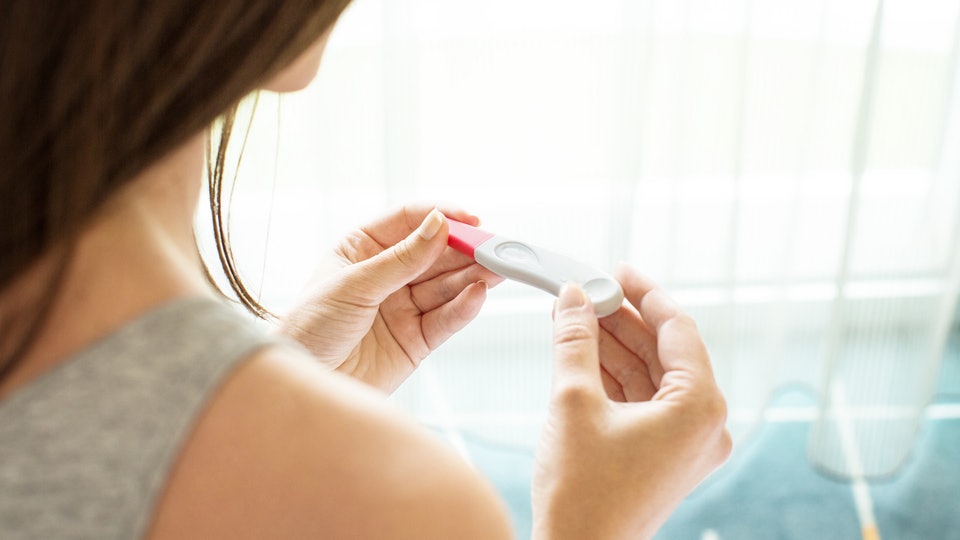When taking home pregnancy tests, accuracy is the key to ensuring you can get your mind around the news and reach out for the care you need. When you can trust that the results are accurate, you are better able to move forward in the next steps with confidence.
Unfortunately, chatter about false results can leave you wondering, “Just how accurate are home pregnancy tests,” until you are able to get a professional diagnosis.To avoid that scenario, use this guide to take a peek into the accuracy of these tests and all the factors that can potentially alter results.
How Tests Detect Pregnancy
Whether designed for use at home or by medical professionals, pregnancy tests look for human chorionic gonadotropic (hCG) hormone. This hormone is only produced by your body when you are pregnant. It is created by the placenta, starting around one week after the fertilized egg implants in the lining of the uterus. As the pregnancy progresses, hCG hormone levels steadily begin to climb, which makes it even easier for the test to detect a positive result.
Pregnancy Test Types on the Market
Medical professionals can detect pregnancy using blood or urine, depending on each patient’s needs. They will collect the samples from their patients and often send the blood to a lab for testing. Urine test results are usually available right away, as the testing is performed onsite. Depending on whether the clinic uses an in-house or outside lab, blood tests can take anywhere from a few hours to several days.
Home pregnancy tests, on the other hand, only use urine to determine if you are pregnant. Although they largely function in the same way, you have your choice of several different types of pregnancy tests to use at home. The most popular type is the pregnancy test stick that you hold under your urine stream for several seconds. The other type is the dip stick, which requires that you pee in a cup first, and then dip the stick in it to test for hCG.
While not common, and sometimes cost-prohibitive, high-tech pregnancy tests have recently hit the market, linking up the test with your smartphone. While you wait for the results, the app provides a bit of distraction, which can prove comforting when stress levels are high.
Best Practices in Using Tests at Home
To ensure you receive the most accurate results possible, there are some things to remember when using home pregnancy tests. First off, you should always carefully read the manufacturer’s instructions and follow them exactly. You need to expose the test equipment to your urine long enough for it to be able to detect hCG in measurable levels. Then, you have to wait for the recommended amount of time for the test to return results, which can take anywhere from one to three minutes. You cannot wait too long to read the results either, as it is only accurate for about five minutes after taking the test.
Also, perform the test right in the morning since that is when hCG levels are at their highest for the day. If you drank a lot of water the day before, it could dilute the hormones in your urine and return a false negative.
Remember not to test too early after a missed period either, as it can take about a week for the placenta to start producing the pregnancy hormones. Finally, if the test returned a negative result, but your period has not started a week later, do not hesitate to retest. You may have just needed to wait a little bit longer for hCG to reach detectable levels.
Accuracy of Home Pregnancy Tests
When used correctly and at the right time, home pregnancy tests are up to 99 percent accurate. Since hCG does not naturally occur in the body outside of pregnancy, false positive results are exceptionally rare. False negatives are more common, however, especially if you do not follow the best practices in completing the at home tests.
When to See a Medical Professional for a Pregnancy Test
If you are ever in doubt about the results received from a home pregnancy test, simply reach out to your healthcare provider for a urine or blood test. They have the most sensitive test equipment available and always follow all the best practices in completing the testing procedure.
If you’re asking the question about pregnancy, you may already be at your peak stress level, so make things easier on yourself. As Dr. Gregory Blomquist, Chief Medical Officer at CommunityMed Family Urgent Care, advises: “An urgent care will usually have a standard fee for such a test, with short to no wait times and convenient hours on evenings and weekends – and walk-ins are always welcomed.”
Your healthcare provider can answer questions, address concerns, or simply provide support while completing the testing process. With the support of a nurse or other medical professional, you never have to go through the process alone or wonder if your results are accurate.











